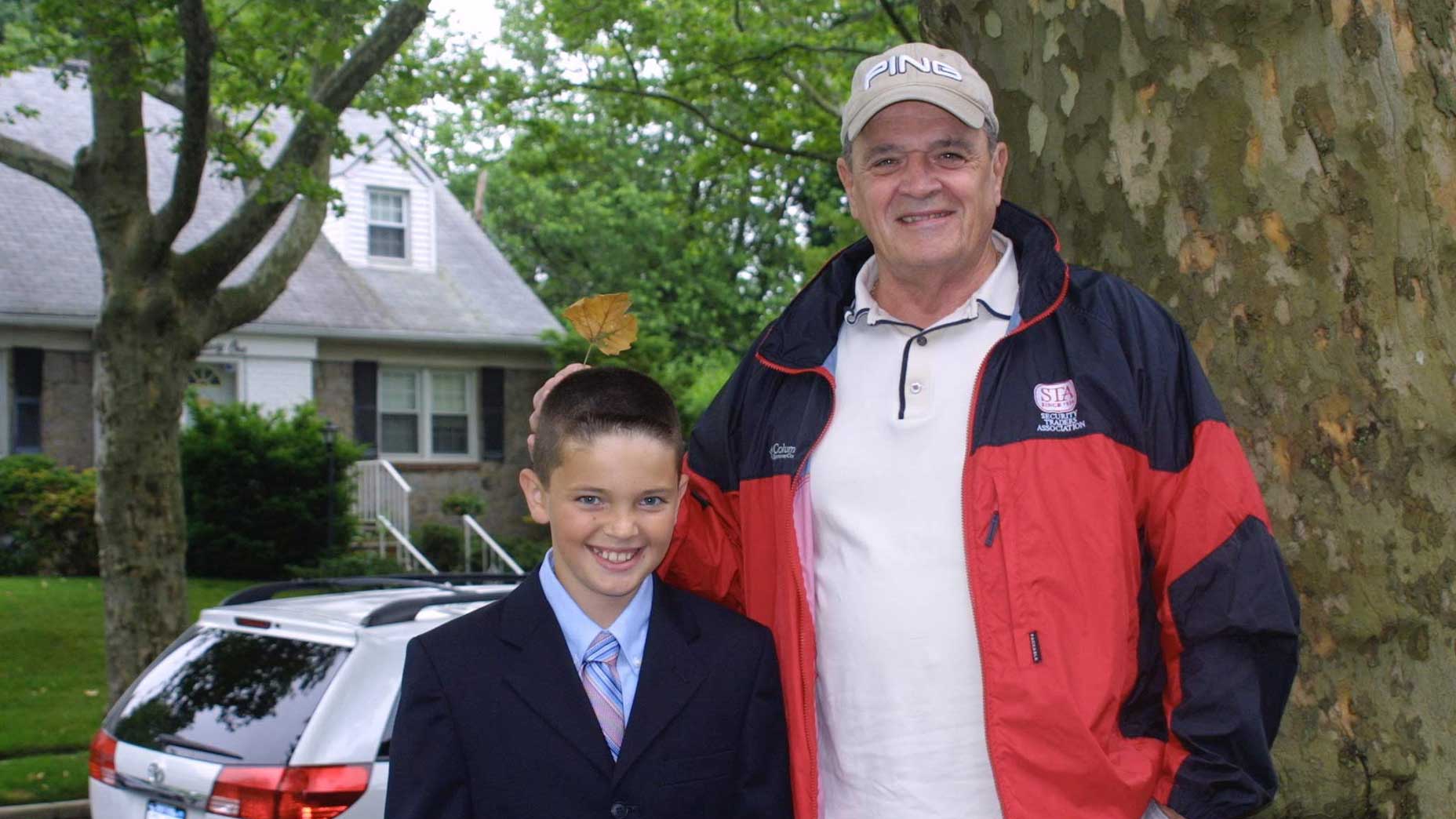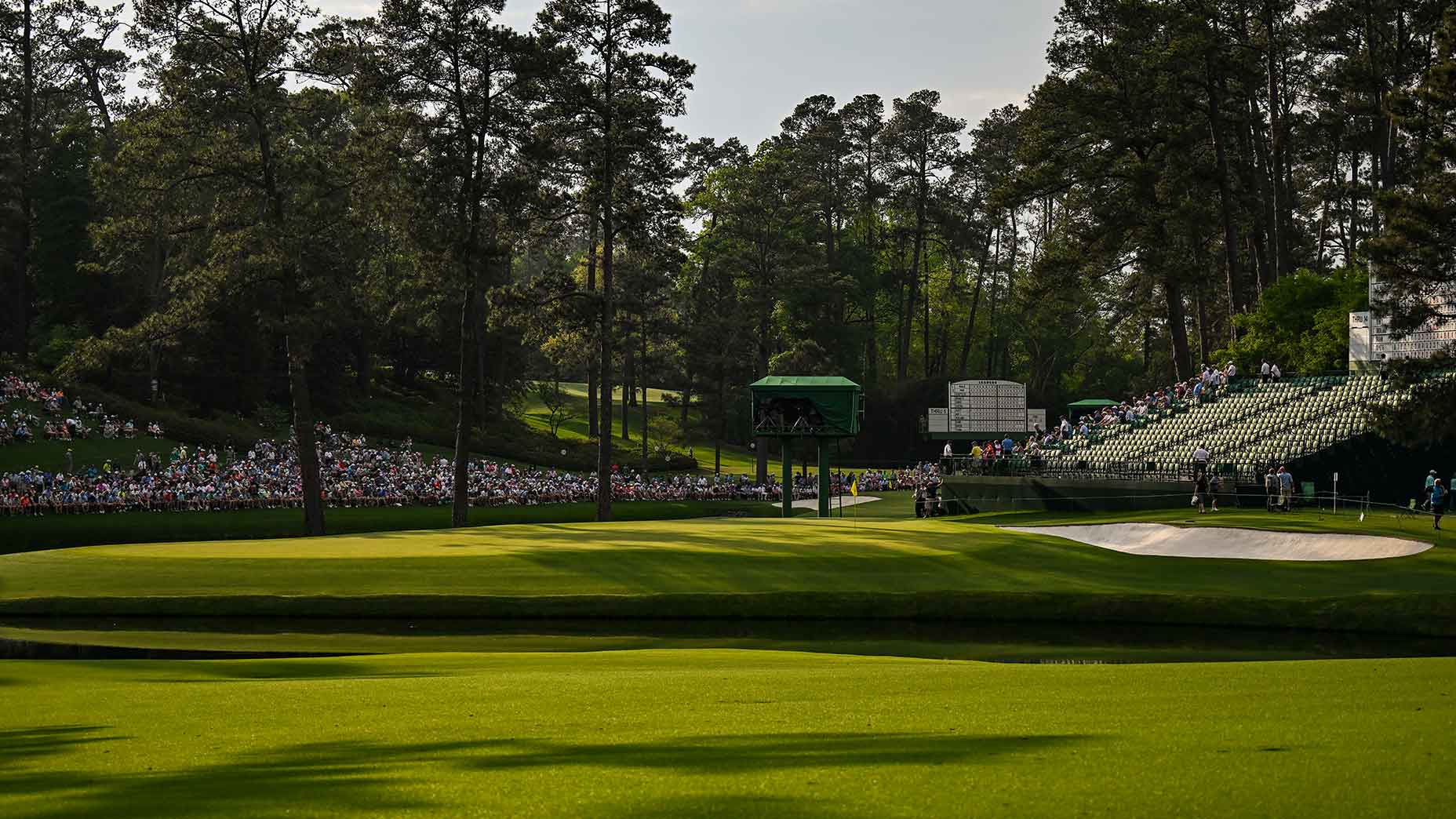There is, it turns out, a worst part about winning the lottery.
The moment — that bad part — lasts only an instant, but it cuts you deeply.
It arrives long before the payout. Before the stream of congratulatory texts and phone calls. Before the first person asks for a favor. Before you’ve even fully grasped it yourself.
It arrived for me on the morning of April 12, 2024, fifteen seconds after Dad’s voice emerged over the speaker on my phone, and thirty seconds after I’d received the most improbable news of my life.
“Yes?” Dad said, confused by my call in the middle of Masters week.
“I’ve got some news,” I said.
“Yes??” he said again, his eyes growing wide.
I reminded him of the Masters Media Lottery, a tradition granting a small number of writers the opportunity to play Augusta National the morning after the Masters ends each year. I told him how I’d entered each of the last four years, including this one, but I’d always been unsuccessful. And then I threw the haymaker.
“Dad,” I said. “I won.”
“F— you,” he’d said in a moment of pure astonishment.
And then he’d started to cry.
Only then did it hit me: the worst part of winning the lottery.
The wildest gift of my life would be mine alone.
LIKE MOST LOTTERY WINNERS, my journey to Magnolia Lane was a long shot.
For a Long Island family proud of its working-class roots, the Masters was a dream in the literal sense: fleeting, glorious and in some essential way unreal. We did not possess the means to view the tournament through any lens other than a CBS camera, and that was okay. The distance only amplified our lust.
The see-but-don’t-touch way of thinking received a jolt when I was accepted, against very long odds, into a prestigious journalism program in the spring of 2015. It was the opportunity of a lifetime — a golden ticket into a career as a sportswriter, maybe even with the possibility of covering a Masters in the flesh. But there was a problem: I couldn’t afford it. Tuition alone would put me tens of thousands of dollars into debt.
Days before the deadline, I got a phone call. My grandpa wanted to see me. Could I come over for dinner?
Joe Boyle — or “Poppy,” as I knew him — was one of my best friends, at once silly and irreverent and brilliant and generous. His nickname came from the garbagemen he’d gifted his car, and evidence of his inherent goodness included paying for and installing a brand-new roof on a house he’d sold days earlier. (Poppy, a New York City contractor and carpenter by trade, was fired from only one job: As a volunteer at the Habitat for Humanity, after he found their building practices substandard and made a stink.)
Golf was Poppy’s last love, a late-life hobby that morphed into a full-blown obsession. By the time I drove out to see him, the cancer had ended his playing days, but he still devoured every word written about the game in his favorite newspaper, The New York Post.
When I arrived, he cut straight to the point.
“After you graduate from that program, you can really do this,” he said, spreading a Masters story by the writer Mark Cannizzaro across the table. “I’m serious.”
I shifted uncomfortably in my seat. I wasn’t sure if I was taking the offer, I said.
“What do you mean?”
“What if I’m still not good enough?”
He paused for a second, staring deep into my eyes. Then he delivered the line that changed my life.
“James, sometimes in life you need to take the gamble,” he said. “Right now is one of those times.”
That was the end of the conversation, and though neither of us knew it, it was the end of our conversation.
Poppy died a few weeks later, materially poor but rich in all the ways that mattered. His funeral was a standing-room-only affair.
As we arrived at the church for the service, Grandma approached me.
“Poppy wanted me to give you this,” she said with a grin. “Consider it your inheritance.”
She reached into a plastic bag and retrieved a small, circular object: an old, red-and-white poker chip from one of the Atlantic City casinos.
My voice caught in my throat.
I tucked the poker chip into my suit pocket and held it tight. A few minutes later, I stood before a packed house and delivered Poppy’s eulogy.
I finished the speech with a line that Poppy shared with me months earlier, seconds after the last round of his life. It was a quote from the famous golfer Ben Hogan.
“As you walk down the fairways of life, you must smell the roses, for you only get one round.”
“It wasn’t Augusta,” I said. “But congrats Poppy, on a round well-played.”

IT IS NOT WHAT you think about as you pass through the pearly gates into golf heaven, but who.
As you stroll down Magnolia Lane with your windows down and your foot off the accelerator, you are struck by the overwhelming sense that you are being watched. Not (necessarily) by club-employed snipers or high-tech cameras, but by the same primordial force that chooses a Masters Champion each April long before he realizes it himself. The golf gods, maybe. Or maybe someone else.
Some make the drive down Magnolia Lane filled with visions of golfing greatness, some with dreams of club lore. But I bet at least some find themselves thinking, as I did, about the people who gave everything for this moment and received nothing in return.
A tee time at Augusta National is the journey of a lifetime. Sometimes, it is the journey of several lifetimes. Your village can’t witness you play in the flesh, but as far as I know, there are no rules against watching in spirit.
“We’ve got you set up in the Champions Locker Room this morning,” the attendant said at the end of Magnolia Lane, interrupting my daydream. “If my memory serves me, I think we’ve given you a good one.”
A minute later, I’d made it upstairs into the holiest locker room in golf, where I found the first evidence of my visitors-in-spirit. In the back corner of the room, I spotted a plaque with my name — JAMES COLGAN — underneath a plaque with someone else’s.
BEN HOGAN, 1951 – 1953.
After a few minutes of ogling, I reattached my jaw and traveled from Hogan’s locker to the 1st tee box at Augusta National. As I walked, I wondered how many people in golf history could say they’d done the same.
I could not feel my grip as I struck my first tee ball, but I was relieved to see it flying high and straight, perfectly cresting over the tree on the right side of the fairway. As I stepped off the tee box, I was equally relieved to hear the voice of the man joining in the flesh for my round, a New York Post writer I’d gotten to know well. His name was Mark Cannizzaro.
As we approached the green, Mark watched as I reached into my pocket and carefully retrieved a ball mark.
“Nice poker chip,” he said, looking down at the red-and-white piece of clay I’d placed on the putting surface.
“Thanks,” I said, unable to suppress a smile. “It was my inheritance.”
Mark did not notice our gallery in the clouds that day at Augusta, but I knew our gallery noticed him. That was how it had always been: the two of us writing, and Poppy reading.
As per usual, we provided plenty of entertainment. I staved off a few nervy swings to piece together an impressive first nine, though my putting performance seemed to be giving my caddie an ulcer. I turned for the back nine ready to challenge a score in the low-80s, which actually seemed like a possibility until I reached the 13th hole.
I’d allowed myself a moment of quiet celebration as I stared down a birdie putt on the 13th: Somehow, I’d managed to avoid Rae’s Creek around Amen Corner. Then, I hit my putt toward the tucked Sunday flag just a hair too firm, watching as the ball trickled past the hole, off the green and into the water. I was laughing so hard I almost forgot to card the double-bogey.
Thankfully, my not-so-tidy 87 produced at least one highlight. It arrived on the right side of the 15th fairway, as I stared down a terrifying second shot over the water. I debated laying up to the bottom of the hill, as I’d seen countless players do all week, but then something came over me. I grabbed my hybrid.
“Take the gamble,” I thought loud enough that I heard myself whisper.
And so I did, swinging as hard and as well as any shot I hit all year. When I made the birdie putt a few minutes later, my first and only at Augusta National, I let out an audible laugh.
That was Poppy’s favorite hole.

I’VE SPENT TWELVE MONTHS trying to understand how my life led to Augusta National on the morning of April 15, 2024.
I’ve debated the metaphysical, questioned the existence of a higher power, and consulted the golf gods. Each gave a compelling case for the unknowable, but none felt quite right. (Though I remain intrigued by the phenomenon of ‘quantum tunneling,’ where particles pass through great barriers despite lacking the classical energy to do so.)
Then one day it hit me. The path from a childhood dream to the fairways of golf heaven was not a solo journey. It never had been. The achievement lay not in a tee time, a golf course, or a heavenly place, but in all the moments that came before it. It was my gift in the literal sense, but it belonged to a group much larger than me.
It was those people who earned this moment — the ones who gave everything, asked for nothing, and believed it when they said I could do anything. Their history is my history. My tee time was not about putting my stamp on golf heaven, it was about putting theirs.
The path to Augusta National does not begin at the gates to Magnolia Lane, with a ticket to the Masters, or in a classroom. It starts with a dream that becomes a promise: To take the big swing, push the chips to the center of the table, and go all-in.
I didn’t know it when I arrived at Augusta National, but I sure do now.
I won the lottery, and golf has nothing to do with it.
You can reach the author at james.colgan@golf.com.
The post The worst part about an Augusta National tee time appeared first on Golf.